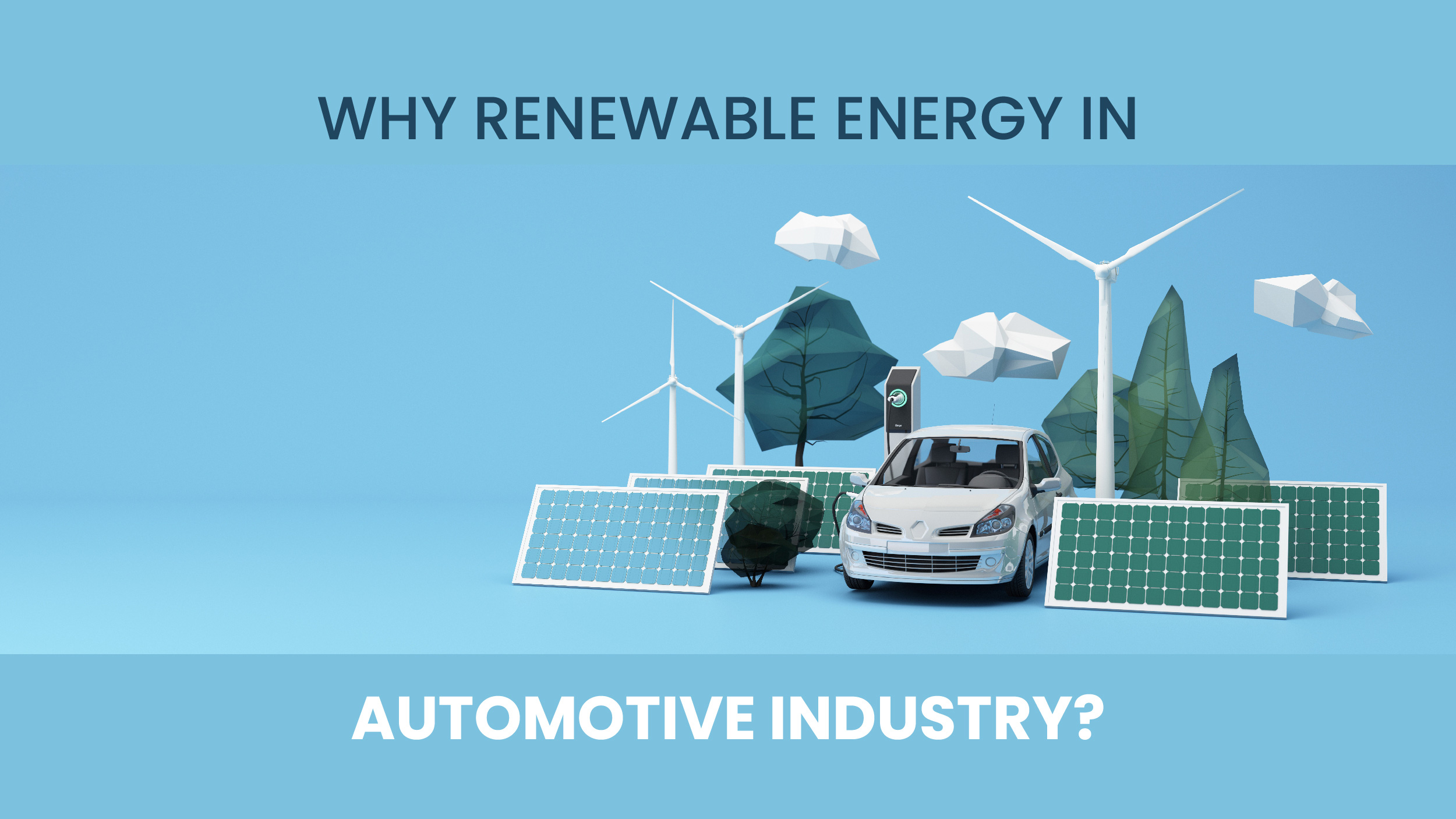The automotive industry is undergoing a profound transformation as a result of the critical need to reduce greenhouse gas emissions and mitigate climate change. Renewable energy has emerged as a game changer, with enormous potential for powering vehicles while minimizing environmental impact.
The automobile industry has had to answer some difficult questions about manufacturing and emissions over the years. However, as a result of tightened government regulations and consumer demand, the automobile industry is gradually shifting away from fossil fuels and toward renewable energy in all of its processes. This decision benefits manufacturers, consumers, and climate change activists.
The EV revolution is already here to stay. For instance, the International Energy Agency (IEA) predicts that the number of electricity-powered passenger vehicles on the world’s roads will exceed 250 million by 2030, while the International Renewable Energy Agency (IRENA) predicts that electric buses and other mass transit vehicles will number well over 10 million.
Why Renewable Energy in Automotive Industry?
Renewable energy has a number of advantages in the automotive industry. For starters, it significantly reduces greenhouse gas emissions, aiding in the fight against climate change. Second, it improves air quality by reducing the release of pollutants that are hazardous to human health. Furthermore, renewable energy reduces reliance on fossil fuels, improving energy security and reducing price volatility.

As the transition to renewable energy necessitates investments in infrastructure and technology, this promotes economic growth and job creation. Finally, implementing renewable energy in the automotive sector is a critical step toward a more sustainable and cleaner future.
Drivers for Renewable Energy in Automotive Industry
The landscape of energy purchasing is changing. Initially, the corporate renewables revolution was limited to the most environmentally progressive businesses seeking to meet sustainability targets. The increasingly competitive price of renewable energy is now enticing new industries to investigate market opportunities. As a result of a variety of motivators, we are now seeing an increase in interest in clean energy procurement in industries ranging from mining to manufacturing.
The automotive industry is one of the most intriguing players in the long-term renewable energy marketplace. Both General Motors and Volkswagen have entered into renewable power purchase agreements (PPAs), putting them at the forefront of a growing trend. There are several industry-specific factors that make automotive OEMs and their suppliers the prime candidates for long-term PPAs.
The Environmental Imperative
The transportation sector contributes significantly to global CO2 emissions, owing primarily to the use of fossil fuels. The use of renewable energy in automobiles not only reduces greenhouse gas emissions but also aids in the fight against air pollution, which has a negative impact on public health and the environment.
Growing Investments
Investments in renewable energy for the automotive industry are increasing significantly. According to BloombergNEF, global investment in clean energy for transportation was expected to exceed $13.3 billion in 2022, an increase of 85% over the previous year. This remarkable growth reflects the sector’s increasing importance and growing confidence in the viability of renewable energy solutions.
Electric Vehicle (EV) Revolution
Electric vehicles are at the forefront of the automotive industry’s renewable energy revolution. The global EV market has grown at an exponential rate, with sales that were expected to exceed 3 million units by 2021. According to BloombergNEF, EV sales will reach 54 million units by 2040, accounting for 58% of global passenger vehicle sales. As electric vehicles become more popular, renewable energy sources such as solar and wind power are being used to charge EV batteries, reducing reliance on fossil fuels.
Advancements in Battery Technology

The widespread adoption of electric vehicles is heavily reliant on battery technology advancements. Battery storage capacity and charging infrastructure innovations have significantly improved the efficiency and range of EVs. Lithium-ion batteries, which are essential for EV propulsion, have seen a 97% reduction in cost over the last decade. As a result, renewable energy-powered EVs are becoming more competitive with conventional internal combustion engine vehicles.
Synergy with Renewable Energy Grids
Vehicles powered by renewable energy have a distinct advantage in terms of grid integration. EVs can function as mobile energy storage units, storing excess renewable energy during off-peak hours and returning it to the grid during peak demand. This vehicle-to-grid (V2G) technology improves grid stability, allows for the integration of renewable energy, and provides additional revenue streams for EV owners.
Government Initiatives and Incentives
Governments around the world recognize the importance of renewable energy in the automotive industry and have launched a number of initiatives to accelerate its adoption. Tax breaks, grants, and subsidies for EV purchases, as well as investments in charging infrastructure, have fueled market growth. Norway, for example, a global leader in EV adoption, reached a remarkable milestone in 2020, with electric vehicles accounting for more than 50% of new car sales.
Economic Benefits and Job Creation
The incorporation of renewable energy into the automotive industry provides significant economic benefits as well as job creation opportunities. The International Renewable Energy Agency (IRENA) estimates that the renewable energy industry will employ more than 12 million people worldwide by 2020. As the automotive industry transitions to renewable energy, it is expected to create new jobs in a variety of sectors, including manufacturing, research and development, installation, and maintenance of renewable energy infrastructure.
According to an International Labour Organization (ILO) study, the global transition to electric vehicles could generate 10 million jobs by 2030. These jobs span the entire value chain, from battery manufacturing to charging infrastructure deployment to renewable energy generation.
Conclusively
Electric vehicles and other clean energy solutions are leading the way in the automotive industry’s renewable energy revolution. Renewable energy sources are becoming more accessible and affordable, making them a compelling alternative to traditional fossil fuel-powered vehicles.
The vision of a sustainable automotive sector powered by renewable energy is within reach with the combined efforts of governments, industry players, and consumers. Accepting this transformation is not only a necessity but also an opportunity to create a cleaner and greener future for future generations.
The adoption of renewable energy in the automotive industry not only benefits the environment but also drives economic growth and job creation. As the market for electric vehicles and renewable energy infrastructure grows, countries and businesses will have a tremendous opportunity to transition to a more sustainable transportation system. We can pave the way for a greener future, promote energy independence, and build resilient economies by leveraging the economic benefits of renewable energy.






